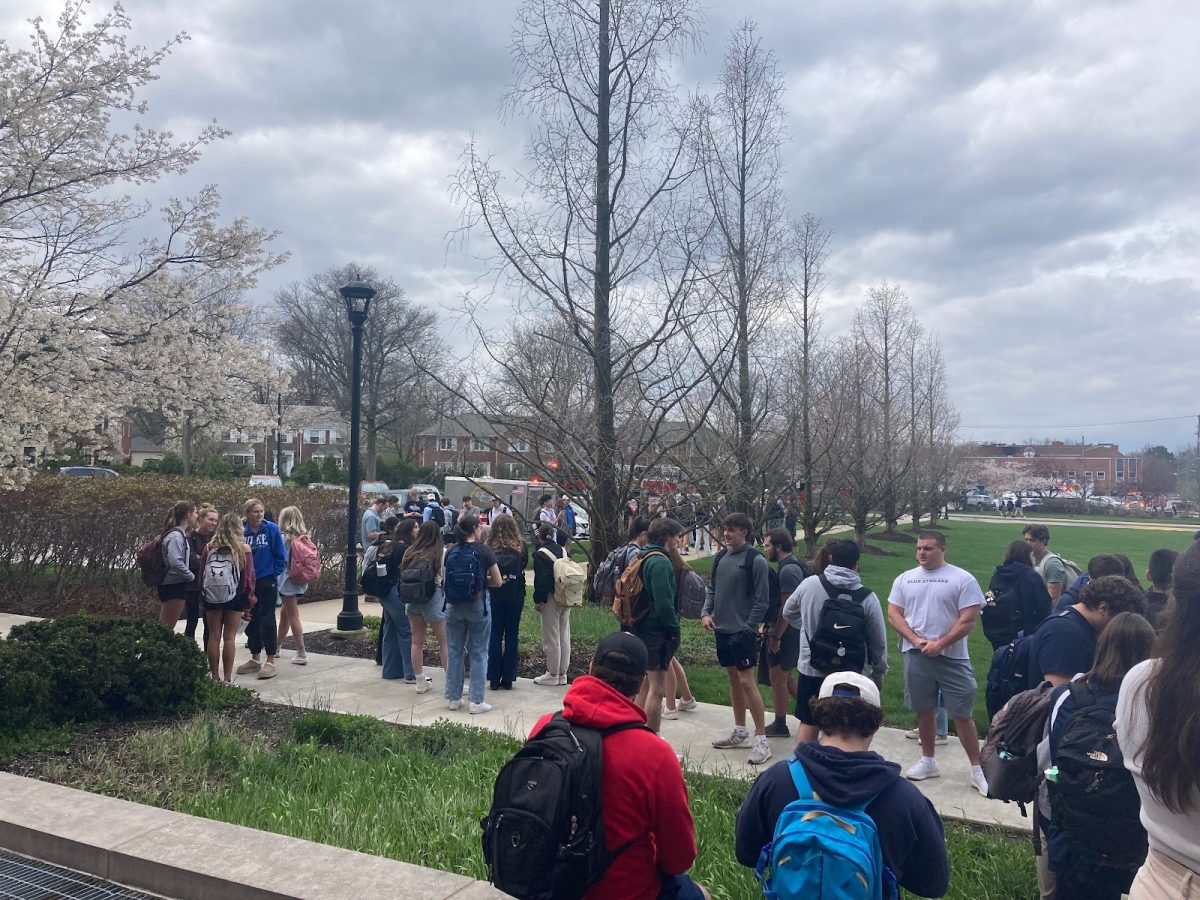Large groups evacuating buildings due to active fire alarms has become a frequent occurrence at John Carroll University. Since this has happened numerous times during the 2023-2024 academic year, students and faculty have been debating whether or not to flee from a facility whenever these sirens go off.
“I hear alarms going off about once every two weeks,” Nick Colbert ‘26 told The Carroll News. “I live in Bernet Hall [and] the alarm has gone off 17 times already. All of them have been false alarms, as the alarm gets set off for something as little as taking a hot shower.”
Colbert continued with “I do leave the building when the fire alarms go off, but it’s only because of people telling me to go out. If an alarm goes off for an actual fire, I would be a little hesitant to go out simply because of the amount of false alarms I have experienced. However, I would still evacuate in an orderly manner.”
“I hear fire alarms roughly a few times a semester, but I have heard them the most in Lombardo,” Jonathan Kay-Lord ‘25 said. “I had an instance where a smoke detector in [my] room malfunctioned and I woke up to a JCUPD officer in my room as well as two firefighters in full uniform. I would just hope that JCU is taking good care of its facilities to give the community a safe environment in which to live and study.”
Whenever a fire alarm goes off on JCU’s campus, the University Heights Fire Department is contacted. JCUPD and Facilities are the first to arrive at the scene.
“Since Jan. 1, we have had 34 fire alarms on campus,” JCUPD Chief Jeffery Daberko shared with The Carroll News. “10 had an identified cause, [which were] some sort of heat or fire in an area from cooking or other cause. Others were due to testing, construction/construction dust, detectors or other issues.”
“We acknowledge there are several functional but older systems on campus and we seek to upgrade these with every renovation,” Jeremy Johnson, director of JCU’s Physical Plant said. “Presently, there are several upgrades underway.”
The Carroll News asked about the fire alarm revisions that are taking place, but did not receive a response.
“So far, I have experienced one [fire alarm] but I do not live on campus,” Katie Mullins ‘24 told The Carroll News. “If it is an ongoing problem, there should be something done about it. My class was interrupted last week before an exam. [It’s] extremely frustrating when class interrupts like that.”
“Truthfully, I would assume it’s another accident or test, but we can never be sure so I always take precautions,” Celeste Wellman ‘25 shared.
Daberko emphasizes that the top priorities after a fire alarm goes off are getting everyone to evacuate the building and locating the source that activated it.
“Students can help us by promptly evacuating buildings when an alarm sounds and being aware that anything that generates steam, heat or smoke can cause an alarm,” he said. “Pulling fire alarms when there is no fire is a criminal offense and a conduct violation. Follow the rules given by [the Office of Residence Life] regarding what materials/activities are and are not allowed in residence halls.”
Robert Perko, chief of the University Heights Fire Department, explained to The Carroll News how UHFD responds to a JCU fire alarm.
“The fire department responds to all fire alarms in the city with an ‘all-company response’ and in some cases, with ‘automatic aid,’” he said. “Currently, an all-company response for UHFD is a command vehicle (SUV), a tower ladder (fire truck) and an ambulance. Auto-aid is requested on large structures with high life safety concerns, such as those at JCU. The alarms at JCU bring a fire engine from [the] Shaker Heights Fire Department via auto-aid.”
Perko continued with “If the alarm company advises our dispatch that the alarm was a false alarm or verified by JCUPD to be a non-hazard, the UHFD officer in charge may decide to downgrade the alarm and have just the tower ladder respond.”
The University Heights Fire Department does not charge John Carroll for activated fire alarms.
Perko emphasized the importance of treating fire alarms seriously, especially in college and university settings.
“Fire alarms are not just routine drills or inconveniences, they are critical safety measures designed to protect lives and property in the event of a fire emergency,” Perko told The Carroll News. “Ignoring or disregarding fire alarms can have serious consequences, injury or loss of life, damage to property and disruption to academic activities.”
Perko went on by saying “As members of our college/university community, it is essential that we all take responsibility for our safety and the safety of others by responding promptly and appropriately to fire alarms. This means evacuating the building immediately and following established evacuation procedures without hesitation.”
Perko wants students to remember that fire safety is everyone’s responsibility. By treating fire alarms seriously, the JCU community can help ensure a safe and secure environment for everyone on campus.



